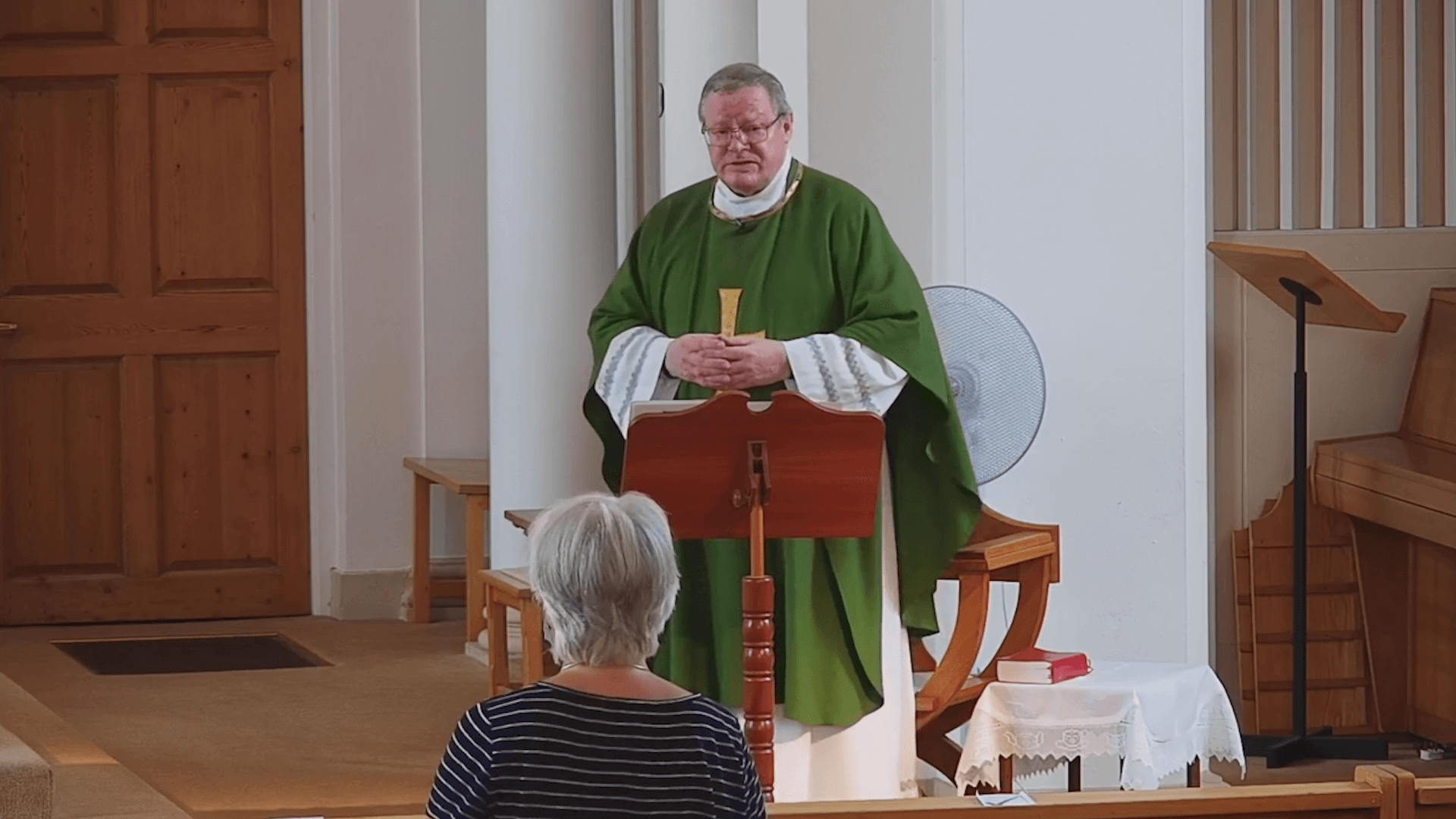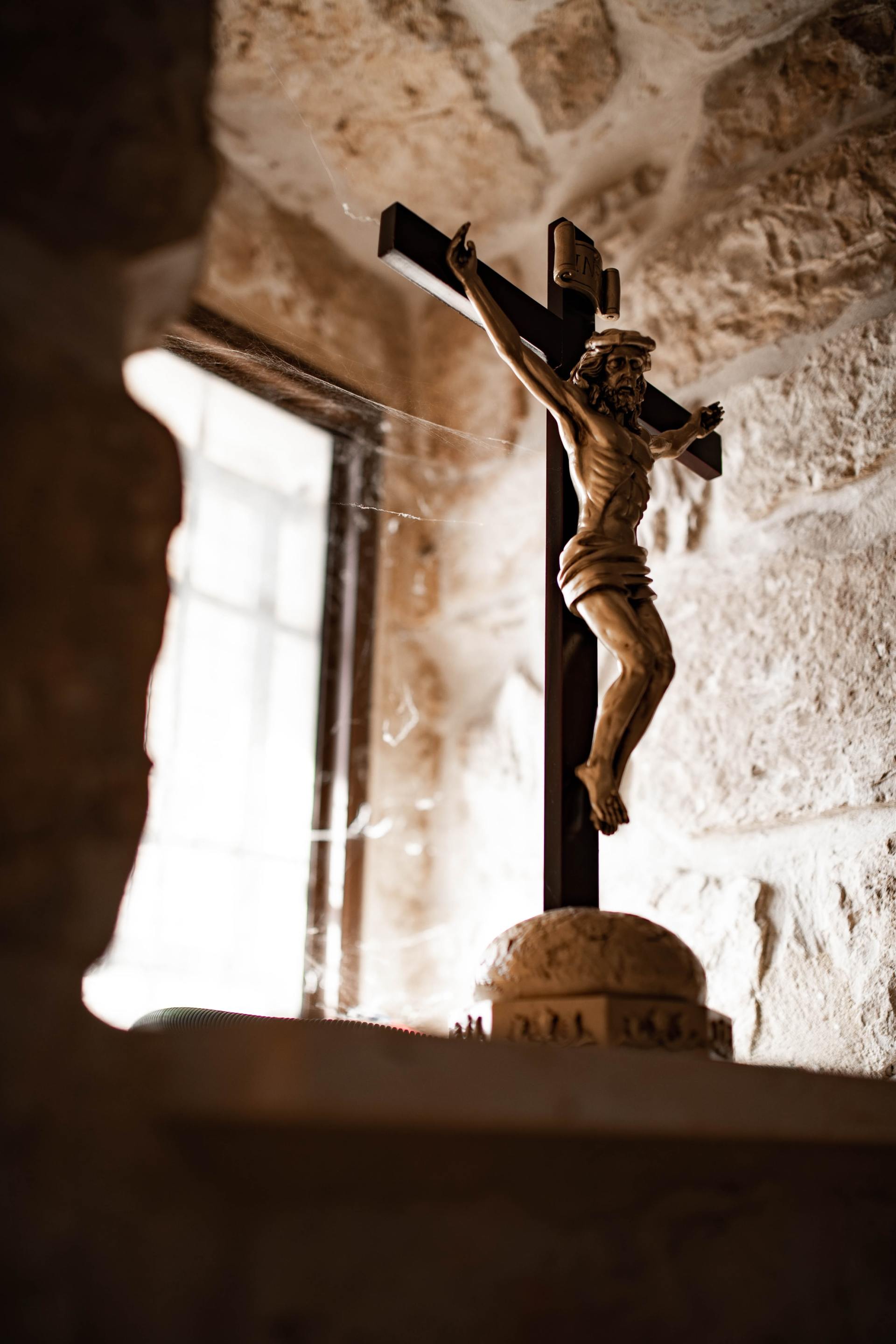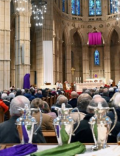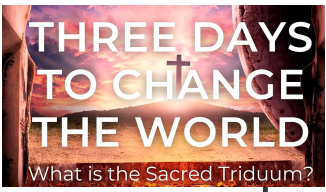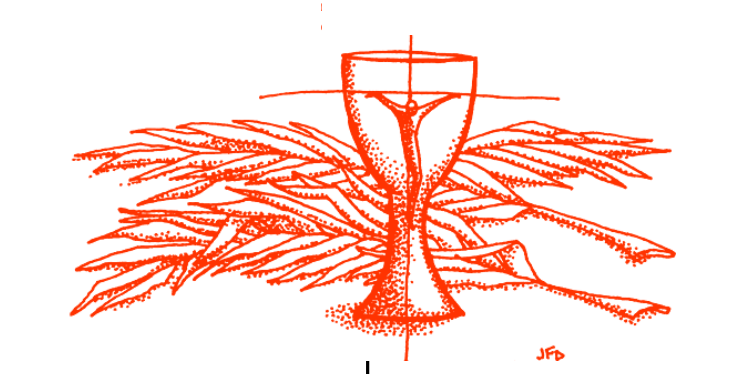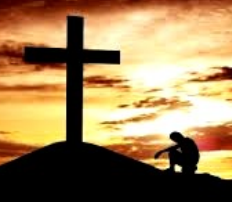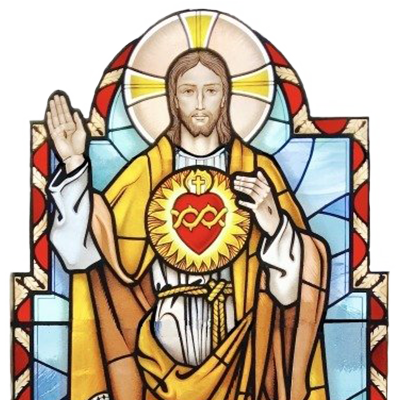Sunday 24th October 2021
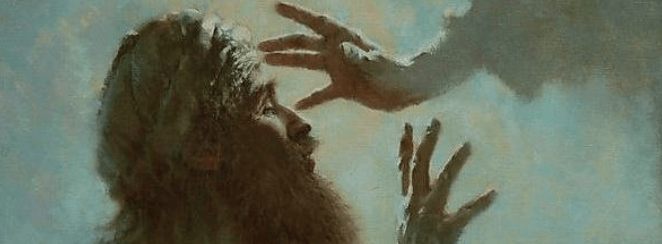
Bartimaeus is sitting at the side of the road, not going anywhere, as Jesus and his disciples approach. They are going somewhere, on the way to Jerusalem. When he hears that Jesus of Nazareth is passing by, hope begins to germinate in the dust that is his own broken self as well as his sitting and begging place. Exiled into destitution by his blindness, probably fallen out of family favour (‘Timaeus’ means ‘respected one’) because of the mistaken idea that physical disability was also indicative of a moral taint, Bartimaeus begs for more than alms. With the eyes of faith he shouts out to Jesus, using not only his everyday name but also a messianic title “Jesu, son of David, have pity on me!” The crowd tosses Bartimaeus the rebuke and scorn that are so often earned by those who have the courage to profess their faith, especially if they are regarded as unimportant, marginalised people. The blind Bartimaeus cannot find his way to Jesus; only his longing again reaches out to him across the distance, begging Jesus to have mercy on him.
And even in the crowd Jesus is aware of the individual, of the tattered man who is eager for personal contact with him. For that, Jesus will take the time and interrupt his journey. Jesus’ command to the crowd, “Call him,” combined with the persistence of Bartimaeus, and their voices become a kind of resurrection chorus that urges him to have courage, rise up, and answer Jesus’ call. Bartimaeus’ response is not only an exultant physical leap, but also a leap of faith. He throws away his cloak, his last poor shred of possessions that, for a beggar, served as coat, sleeping bag, and scrappy collecting rug for the few coins tossed his way. Nothing now matters to Bartimaeus, not even his dusty ‘bit of turf’ that, like every beggar, he would have guarded so jealously. Bartimaeus is about to be newly clothed with the identity of a follower of Jesus, an eager beggar of the abundant riches that can be expected as a disciple.
Jesus asks this beggar ‘outsider’ the identical question that we heard him ask the two privileged ‘insider’ disciples in last weekend’s gospel: “What do you want me to do for you?” The contrast of Bartimaeus’ response with theirs is both poignant and prophetic. Blinded by self-aggrandisement to the demands of following a suffering and servant Messiah, the disciples had asked for the best places in the kingdom. Ambition and possessiveness will soon cause them to leave everything to run away from Jesus, but Bartimaeus, aware of his poverty and disability, asks for nothing but that he may see, addressing Jesus reverently as “Rabbouni,” Master. This address is only used one other time in the New Testament - when Mary Magdalene recognises her risen Lord (John 20:16). Jesus knows that the blind man already has the seeing eyes of faith, and he tells Bartimaeus that it is this faith that now restores his physical sight. “Go your way; your faith has saved you,” says Jesus. No longer confined to groping his blind way around the place, Bartimaeus can “go” wherever he wants to, but his choice is to follow Jesus “on the way,” the way that leads to Jerusalem, the city of passion, death, and resurrection.
